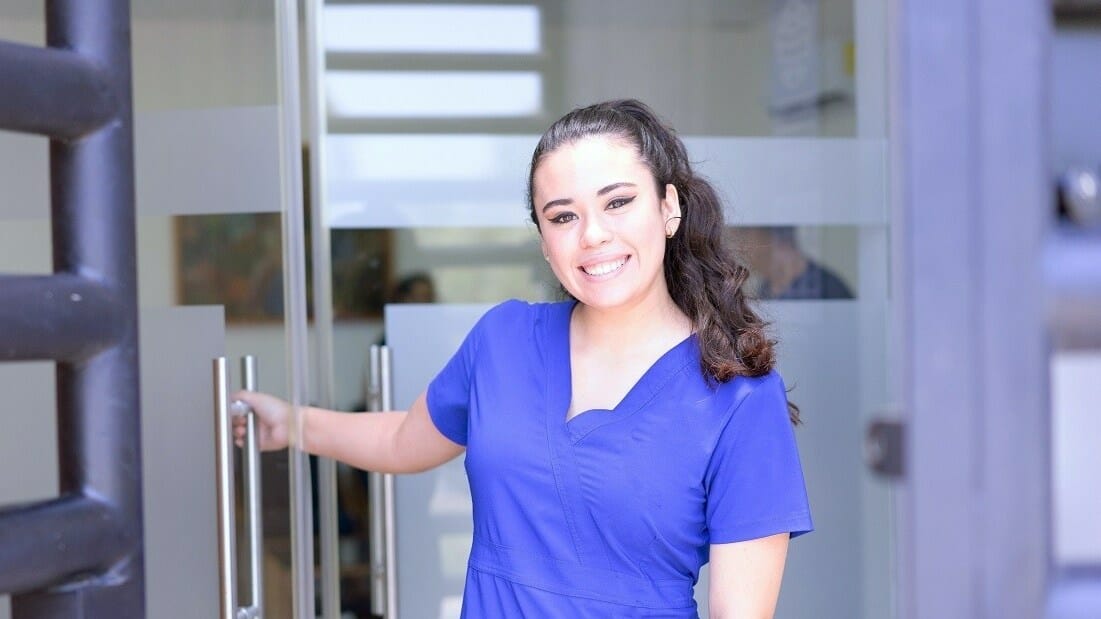Graduate Entry Medicine: Europe vs The Caribbean


Congratulations on getting your Bachelor’s Degree! As an undergraduate, you face the exciting journey of enrolling in a graduate entry medicine course and soon becoming a successful healthcare professional.
There are a couple of hot destinations you should consider before deciding where to study Medicine: Europe and the Caribbean.
What is Graduate Entry Medicine?
A graduate entry medicine course is a streamlined pathway towards becoming a doctor. It is designed for relevant degree holders who want to pursue a career in Medicine.
In Europe, relevant Bachelor's degree holders get to enrol in a typical 6-year medicine course from, say, year 2 or 3, depending on the coursework they’ve covered in their previous College or University studies.
In comparison, the graduate entry pathway in the Caribbean uses the reputable US model for studying medicine and offers a standalone 4-year MD programme.
Both of these pathways aim to fast-track the journey to a medical career by building upon eligible students' existing knowledge and skills.
Graduate Entry Medicine: Europe vs. The Caribbean
Graduate entry courses in Medicine have specific differences between European and Caribbean universities. Let’s go over them so that you can make an informed decision as to where you’d like to apply for an MD:
| Comparison Criteria | Europe | Caribbean |
| Course Duration | 4 - 5 years | 4 years |
| Curriculum | Core medical subjects & practical training | US-based teaching model. Theoretical knowledge & clinical rotations. |
| Teaching Method | Lectures, seminars, & practical sessions in larger groups | Interactive teaching in small class sizes with problem-based learning & case studies |
| Admission Process | Highly competitive & limited seats | Less competitive & flexible admission requirements |
| Elective Opportunities | A vast array of options | A few number of options |
| Accreditation | Accredited by their local governments | |
| Global Recognition | Listed in WDOMS & awarding internationally recognised medical degrees | |
| Career prospects | Graduates may pursue a medical career worldwide, sometimes upon excelling at local licensing exams (e.g., the PLAB exam in the UK) | |
Both the European and Caribbean universities offering graduate entry pathways and listed on the Medlink Students website enjoy global recognition when it comes to the medical degrees they award.
Admission Requirements for Graduate Entry Medicine: Europe vs. The Caribbean
The entry requirements for enrolling in a graduate medicine programme are generally similar in both regions, though they may vary from one university to another:
- Relevant Bachelor’s Degree
- Strong previous academic records
- Prerequisite courses - Certain medical schools can ask applicants to have completed specific courses such as Biology, Chemistry, Organic Chemistry, Physics, Mathematics, and sometimes English
- Standardised tests - e.g.MCAT
- A personal statement
- Letters of recommendation
- Interview
- English language proficiency exam/certificate
- Entrance exam (only some universities host exams)
It's essential to carefully review the specific admission requirements of the medical schools you are interested in, as failing to follow them will result in your application getting rejected.
If you need help verifying your eligibility for a specific medical program or would like assistance submitting a competitive application to the med school of your choice - reach out to our expert student advisors, and we’ll guide you toward a successful career in medicine.
Even if you don’t meet a university grad-entry requirement, you could always sign up for a Pre-Med course in Europe or in the Caribbean.
Read our High Schoolers' Guide to Medical School to learn your study options if you are coming straight from secondary education.
Cost of Studying Grad-Entry Medicine in Europe vs. the Caribbean
There are 2 main criteria that affect the cost of study at a given location:
| Type of Expense/Country | Europe | Caribbean |
| Tuition Fees (annually) | €11,000 - €13,200 | With Medlink Students scholarship: €8,200 - €8,600 Standard fees: €15,000 - €21,550 |
| Cost of Living (monthly) | €800 - €1,000 | €1,100 - €1,400 |
Currently, 2 of the best medical universities in Europe that offer graduate entry paths are:
- The Medical University of Silesia in Poland
- The Poznan University of Medical Sciences in Poland
If the Medlink Students Scholarship has caught your eye, we are happy to announce that we are offering exclusive scholarship opportunities to the University of Health Sciences in Antigua and Barbuda, which is internationally recognised medical university in the Caribbean.
This university hold our values and belief that every student should have access to high-quality medical education. By applying with Medlink Students, you will get a free evaluation to see if you qualify for the scholarship that can significantly reduce the overall cost of studying medicine.
These scholarships are awarded to eligible students based on their previous academic record. If you are interested in learning whether you are eligible for the scholarship, contact one of our expert advisors for a free consultation.
Another option for graduate entry in the Caribbean is applying to the prestigious Ross University School Of Medicine, one of the "Big 4" of the best medical schools in the region. It provides an exceptional medical education that completely prepares students for a successful career as a doctor in many countries across the world.
Advantages of Studying Graduate Entry Medicine in Europe or the Caribbean
Both regions have several unique characteristics which make them stand out in the world of medical education:
Top 7 unique advantages of studying graduate entry medicine in Europe
- Diverse European cultural exposure
- Global networking opportunities
- Exposure to the diverse healthcare systems in Europe
- Multidisciplinary collaborations
- Extensive elective specialisation options
- Straight-forward realisation as a doctor after graduation
- Convenient travel options to visit many European countries
Top 7 unique advantages of studying graduate entry medicine in the Caribbean
- Small class sizes & 1:1 teaching approach
- Tropical gateway & beautiful nature
- US-based teaching model
- Flexible clinical rotations: worldwide practising options, including student's home country
- Opportunities to take part in global health initiatives like Medical Students without Borders
- Networking opportunities within the Caribbean and US medical communities
- Convenient travelling options within the Caribbean & the USA
Conclusion
Whether you pursue an MD in a European or Caribbean university - it is a hard choice to make. Whether it is budget constraints, grades & academic achievement, or simply climate and cultural preferences, you can always rely on Medlink Students’ advisor to guide you towards selecting the best medical university for you.
Check your email to Book a FREE call
with an expert advisor
Look at your promotions/spam folders, just in case.
To further help you pick among different locations and medical university benefits around the globe, we’ve drafted the following comparison for you. Skim it through and let us know what you think:
| Application Stage | USA | UK | Caribbean | Eastern Europe |
| Undergraduate Degree | Community College (4 years) | No | Pre-Med course (1.3 years) | No |
| Entrance Exam | MCAT | UCAT or BMAT | Interview or MCAT | University administered examinations in Biology & Chemistry |
| Medical University (MD Degree) | 4 years | 5-6 years or 4 years (Grad-entry course) | 2 years (junior doctor) 3-8 years (speciality) | 6 years |
| Licensure | USMLE 1 & USMLE 2 | PLAB or UKMLA | Varies by Practice Country | Varies by Practice Country |
| Residency | Via The Match3-7 years | 2 years (junior doctor)3-8 years (specialty) | Varies by Practice Country | Varies by Practice Country |
FAQs
Can I transfer credits from my previous medical studies to a graduate entry medicine program in either region?
Transfer policies vary by university, but some may consider credit transfers based on individual assessment of your previous medical coursework. If you’ve got a specific university in mind, you can ask one of our expert advisors.
What are the possibilities for clinical placements in different medical specialities during graduate entry medicine studies?
Both Europe and the Caribbean offer diverse clinical placements across various medical specialities to provide comprehensive training.
How do European and Caribbean medical schools support students in their preparation for licensing exams in various countries?
Medical schools in both regions offer resources and guidance to help students succeed in licensing exams required for practice in different countries.
What is the student-to-faculty ratio in both regions, and how does it impact the learning experience?
The student-to-faculty ratio varies by university, but generally, smaller ratios in the Caribbean allow for more personalised attention and engagement.
How do European and Caribbean medical schools address the mental health and well-being of their students?
Both regions prioritise student mental health and offer counselling services and support networks for their student's well-being.
What role do students play in medical research and clinical trials in both regions?
Medical schools in Europe and the Caribbean both give students the opportunity to take part in research and clinical trials.
Are European medical degrees accepted in the Caribbean and vice versa?
Yes, both degrees hold international recognition and are accepted in many countries throughout the world.
Can graduates with a European/Caribbean MD practise in other countries?
Yes, graduates can work in a lot of countries worldwide. However, certain countries may ask you to pass a licensing exam before you can earn your licensure to practise there.
How can Medlink Students help me with the application process for graduate entry medicine?
Medlink Students provides expert guidance and support throughout the entire application process for graduate entry medicine, including personalised consultations and scholarship opportunities. We take our commitment to your success even further by offering comprehensive support services throughout your medical studies and beyond your graduation.
How long does it take to travel from the UK to the Caribbean?
It depends on where from and to where you'll be travelling, but flight time will generally take between 8 and 12 hours.
2 comments on “Graduate Entry Medicine: Europe vs The Caribbean”
Leave a Reply

About Medlink Students
Leading international recruitment company for medical students in Europe. British Council Certified Agents. 10+ years of experience and more than 10,000 students advised.









Can you provide me with information on how clinical rotations are organized, and whether they are done locally or can be done internationally?
Thank you for your question.
There are differences in how the clinical rotations are organized and where they are conducted between the Caribbean and Europe. In Europe, clinical rotations take place in years 4 and 5, typically within local hospitals affiliated with the university. For a detailed breakdown of each year of medical school in Europe, you can visit this link.
In the Caribbean, eligible students have the opportunity to complete the course in 4 years, with clinical rotations occurring in the last 2 years. One advantageous aspect of Caribbean medical schools is the flexibility they offer in choosing rotation locations, including options within the student's home country. For more information on eligibility for the 4-year course in the Caribbean and more suport on your future medical academic journey please schedule a consultation with one of our student advisors.